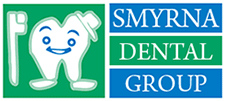If you've undergone root canal therapy in Smyrna TN, you might feel a sense of relief after your procedure. However, not all experiences are smooth sailing once the treatment is complete. Sometimes, complications can arise that may leave you feeling anxious about your dental health. Understanding the signs of these potential issues is vital for safeguarding your smile and ensuring optimal oral hygiene. In this blog post, we’ll explore what to watch for after a root canal, why complications may occur, and when it's crucial to reach out to your dentist. Ready to dive into the details? Let’s get started!
What is a Root Canal in Smyrna TN?
A root canal is a dental procedure designed to treat infection or damage within the pulp of a tooth. The pulp is the soft tissue containing nerves and blood vessels, which can become compromised due to decay or injury.
During the treatment, your dentist will carefully remove the infected pulp. After cleaning and disinfecting the inside of the tooth, they fill it with a biocompatible material to seal it off from further infection.
This procedure not only alleviates pain but also helps save your natural tooth. Preserving teeth is essential for maintaining overall dental health and function.
While many fear root canals due to misconceptions about pain, advances in dentistry have made this process much more comfortable than ever before. With proper care afterward, most patients go on to enjoy their renewed smiles for years to come.
Common Signs of Root Canal Complications
After undergoing root canal therapy, some patients may experience complications. It's essential to recognize the signs early.
- Persistent pain is one of the most common issues. If discomfort lingers long after your procedure, it could indicate an underlying problem.
- Swelling or tenderness around the treated area can also signal complications. This might suggest an infection that needs immediate attention.
- Changes in sensitivity are another red flag. If your tooth becomes unusually sensitive to hot or cold temperatures, don’t ignore this warning sign.
- Additionally, if you notice any discharge from the gums near the treated tooth, it’s crucial to reach out for help right away.
Taking these symptoms seriously will ensure better outcomes and maintain oral health following root canal therapy in Smyrna, TN. Contact us to learn more.
Potential Causes of Root Canal Complications
Root canal complications can arise from several factors.
- One common cause is an incomplete cleaning of the root canals. If all infected tissue isn't removed, lingering bacteria can lead to further issues.
- Another potential culprit is a fracture in the tooth. Even minor cracks may allow bacteria to seep back into the pulp, resulting in pain and infection.
- In some cases, the seal used during treatment might fail. This improper sealing creates an opening for contaminants to enter.
- Additionally, underlying dental conditions such as gum disease can complicate healing after a root canal procedure. They may hinder recovery and increase discomfort post-treatment.
- Individual anatomy plays a role; sometimes patients have complex root systems that are difficult to treat fully. Each unique situation requires careful attention by your dentist to ensure lasting success with root canal therapy in Smyrna, TN.
When to Call Your Dentist
If you're experiencing persistent pain after a root canal, it's time to reach out. Sharp or throbbing discomfort can indicate complications that need immediate attention.
Swelling around the treated area is another clear sign that something isn’t right. This could mean an infection or inflammation that requires professional evaluation.
Changes in your bite or difficulty chewing are also red flags. If you notice anything unusual when you close your mouth, don’t hesitate to contact your dentist.
Foul odors emanating from the treatment site should not be ignored either. It often signals an underlying problem that needs prompt care.
Remember, good communication with your dental team is essential for maintaining oral health. Trust your instincts; if something feels off, it’s better to get checked sooner rather than later.
How to Prevent Root Canal Complications
Preventing root canal complications starts with proper oral hygiene.
- Brush your teeth at least twice a day and floss daily to keep plaque at bay. This simple routine helps maintain healthy gums and teeth.
- Regular dental visits are essential, too. Your dentist can spot potential issues before they escalate, ensuring that any underlying problems are addressed promptly.
- Be mindful of what you eat. Avoid overly hard or sticky foods that could damage treated teeth. Instead, focus on a balanced diet rich in vitamins and minerals to support overall dental health.
- If you notice any changes in your tooth's condition post-treatment—such as swelling or persistent pain—don’t delay in seeking help. Early intervention is key to preventing further complications.
Staying informed about your dental health empowers you to take proactive steps toward maintaining it effectively.
The Importance of Regular Dental Check-Ups
Regular dental check-ups play a crucial role in maintaining oral health. These visits allow your dentist to spot issues before they escalate into serious problems.
Even if you feel fine, underlying conditions can often go unnoticed. Early detection of cavities or gum disease is key to effective treatment.
During these appointments, professional cleanings remove plaque and tartar that everyday brushing can't tackle. This not only helps keep your teeth bright but also protects against decay.
Your dentist can provide tailored advice on oral hygiene practices based on your unique needs. Whether it’s tips for better brushing techniques or dietary changes, personalized guidance can make a significant difference.
Consistent check-ups foster a strong relationship with your dental care provider. This openness encourages communication about any concerns you might have regarding pain or discomfort, ensuring timely adjustments to your treatment plan as needed.
Conclusion
Root canal therapy in Smyrna, TN, can be a lifesaver when it comes to preserving your natural teeth. However, complications may arise even after this crucial procedure. Staying aware of the signs that something might be wrong is important for maintaining your oral health.
If you notice increased pain, swelling, or any unusual symptoms following your treatment, don’t hesitate to reach out to your dentist. Early intervention can prevent further issues and ensure the success of your root canal.
Remember that taking preventative measures is key. Maintain proper oral hygiene and schedule regular dental check-ups. Your dentist can monitor the health of your teeth and catch potential problems before they escalate.
Your dental health is an essential part of overall well-being, so prioritize communication with your dental care provider regarding any concerns or changes you experience after undergoing root canal therapy. The sooner you act on these signs, the better chance you have at keeping those pearly whites healthy for years to come!
If you are interested in learning more about our services, call Smyrna Dental Group in Smyrna, TN, at (615) 355-6800 to schedule an appointment with our dentists or request an appointment online.






